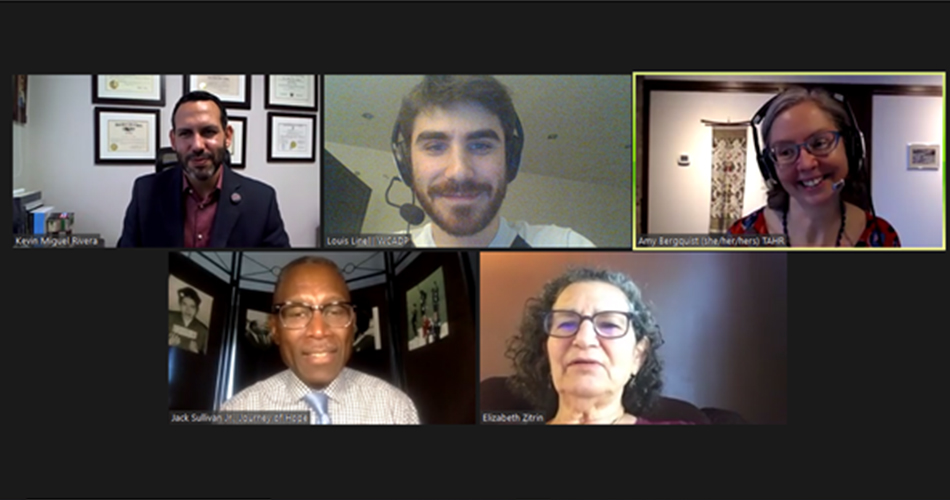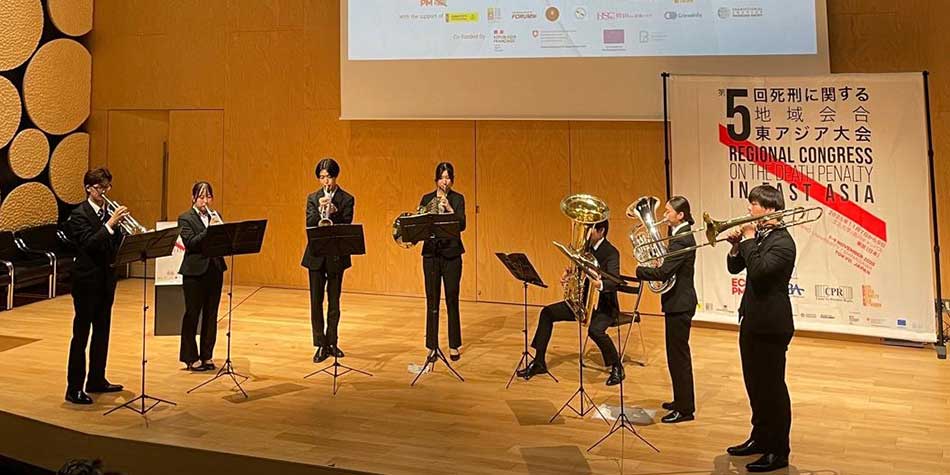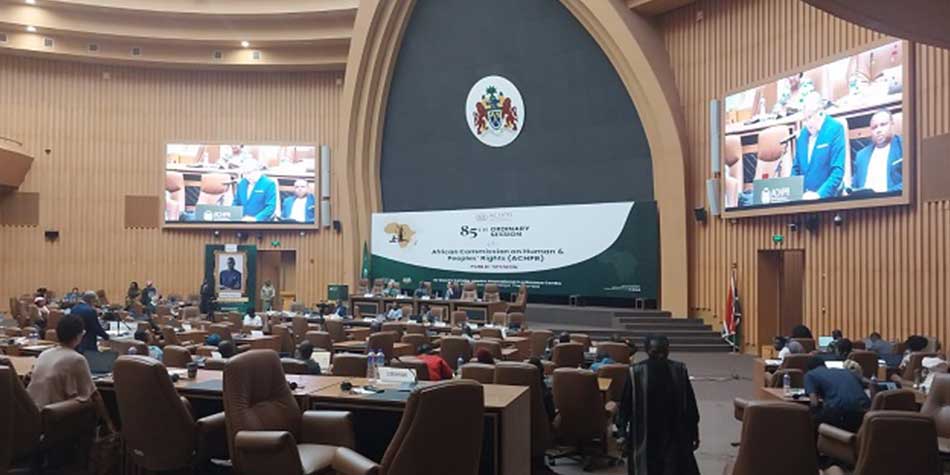
UPR 36th Session Debriefed on Facebook Live
International standards
As the 36th session of the Universal Periodic Review (UPR) was being held under the auspices of the UN Human Rights Council from 02 to 13 November, the Advocates for Human Rights, a member organization of the World Coalition, facilitated Facebook live debriefings to cover the review of States that have not yet abolished capital punishment.
A Unique State-Driven Process to Monitor the Situation of Human Rights Worldwide
The Universal Periodic Review is a mechanism of the UN Human Rights Council whose objective is to examine the situation of every UN member States regarding the protection of human rights. It aims at ensuring that UN member States duly comply with their international obligations or have undertaken the implementation of reforms to guarantee human rights. As the name suggests, each UN member State is expected to be reviewed on a regular basis – hence the use of the terms “universal” and “periodic”.
The UPR consists in a succession of four-year cycles of review, each of them divided into four main stages. The first stage of one State’s UPR requires the preparation of reports on the human rights situation in the country. This includes a comprehensive national report submitted by the State delegation prior to its review, as well as information that may have been communicated by other stakeholders, including Civil Society Organizations, such as non-government organizations (NGO) and National Human rights Institutions (NHRI). Stage two involves the interactive dialogue during which the government delegation introduces its report before the Human Rights Council. Every UN member State that wishes to participate in this interactive dialogue can commend the State under review for the recent commitments it has taken regarding human rights or raise its concerns. It is also entitled to offer recommendations to help the State further comply with international human rights standards. Then, the government delegation may be given the floor to provide other States with oral answers. Stage three consists of the drafting and the adoption of the review report in which the State gives its responses for all the recommendations that have been made. It can either accept or note them – which means rejecting. Each State has to share its responses prior to the next session of the Human Rights Council that is scheduled in March 2021. The last stage is also the longest, as it lasts approximatively three years and consists of the implementation of all recommendations that have been accepted. NGOs and NHRIs are particularly encouraged to monitor this phase, as their comments could contribute to the next review, four years later.
Live Debriefings of Interactive Dialogue – Diplomacy Serving Human Rights Values
Member organizations of the World Coalition that submitted information for States whose legislation still provides for capital punishment, had been invited by the Advocates for Human Rights to participate in Facebook live debriefings in order to discuss the recommendations made on this occasion. They could share their analysis and respond to questions from the chat.
States that have been reviewed are the following: Belarus, Jamaica, Libya, Liberia, Malawi, Maldives, and the USA. Each debriefing was broadcasted live on the World Coalition’s Facebook page and remains available for watching – click the country you would like to access the video. As regards such States, where legislation still provides for the death penalty, recommendations made during the interactive dialogues of the Universal Periodic Reviews would range from establishing a moratorium on executions to fully abolishing the death penalty. The UN Human Rights Council is an intergovernmental area where diplomatic issues may be expected to collide, and this makes the wording of recommendations offered by States a subtle matter. Indeed, States with a strong retentionist position are more likely to note every recommendation that calls upon them to formally abolish capital punishment. Within the combat for universal abolition, it appears clearly that every new step undertaken to limit the application of such an inhuman penalty is a fragile but substantial achievement. Alexius Kamangila, a Reprieve follow and a volunteer for Communitat de San’Egidio, did value the response of the delegation of Malawi as regards the ongoing moratorium. Although the President committed to carrying out executions during his campaign, the State delegation explained that Malawi would continue to observe a moratorium.
As another illustration, discussion on the USA review focused on the government’s statement, which assured that capital punishment is never used in an arbitrary or a discriminatory manner. According to the panellists, however, the Washington Supreme Court State v. Gregory case, in which the Court found capital punishment to be unconstitutional after considering racial bias and arbitrariness, may fuel serious concerns and even contribute to refuting such a statement. The idea that capital punishment would have a unique deterrent effect is not supported by evidence; but it remains in all cases a strongly polarized political matter.
“Death is not a traditional value”, Valiantsin Stefanovic, from Viatnsa and current Vice-President of the International Federation for Human Rights (FIDH), pointed out during the debriefing that covered Belarus – the last European State that retains the death penalty and keeps carrying out executions.
Advice from Civil Society Organizations to Strengthen One Another
The Universal Periodic Review allows Civil Society Organizations to get involved in international advocacy that can be intimidating at first sight. Panellists from the Maldives pointed out that the UPR is a leading platform to shine a light on many human rights violations as well as to engage diplomats. In this regard, Germany recommended Maldives conduct further investigation on the ban of the local NGO Maldivian Democracy Network, which is exceedingly rare.
All participants also emphasized the importance of advocating both in Geneva, where the UN Human Rights Council convenes, and in capitals, as well as working closely with embassies. As explained above, the UPR process implies a significant commitment from States. For a State under review, the UPR does not culminate in providing responses for each recommendation. It continues afterwards with a paramount three-year stage during which the State is supposed to adopt all necessary measures to enshrine these recommendations. The UPR involves a lot of work on the part of Civil Society Organizations to keep track of recommendations and hold States accountable of the international commitments they have made. Nonetheless, this commitment relies on a mutual basis. One may consider that States which had offered recommendations have a responsibility, as they have committed to following up their implementation in the three next years – prior to reviewing the State again.
Every effort matters. Cycle after cycle, the right to life is undoubtedly put a bit more on the frontpage, and time after time, abolition becomes a closer, stronger and wider achievement.







